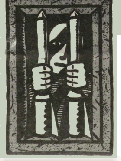Arbitrator: Reactor workers cannot blame cancer on radiation
By Yuval Yoaz, Haaretz Correspondent
March 23 2005
http://www.haaretz.com/hasen/spages/556161.html
24/03/2005
There is no causal connection between the cancer contracted by 31 nuclear reactor workers and the level of their exposure to radioactive substances, ruled judge (ret.) Vardi Zeiler this week. The workers are therefore not eligible for compensation from the state, which they are suing, said Zeiler, the arbitrator between the workers and the state.
However, Zeiler also could not rule out a causal connection between the workers' disease and their exposure to chemicals and dangerous, cancer-causing substances during their work in the reactor.
Zeiler's ruling about the radioactive radiation was in keeping with the conclusion of a court-appointed panel of medical experts, which concluded that in the case of 31 out of 37 plaintiffs, no causal connection was found between the workers' disease and their job.
Zeiler said he did not have sufficient data to rule out the connection between the workers' morbidity and their exposure to dangerous substances. He blasted the nuclear reactor's management for failing to put together the relevant data and said the data and evidence provided by the management was "flimsy, incomplete and inaccurate."
Zeiler asked for information about all the substances that the workers were exposed to during the years they worked at the nuclear reactor, so that he could make a decision.
The six plaintiffs in whose case the medical experts did not rule out the causal relation between the disease and their work can take their suit to the next stage - proving the state's guilt.
The suits for damages filed by nuclear reactor workers who developed cancer and of the families of those who had died of cancer are being heard in the Jerusalem and Tel Aviv District Courts.
The plaintiffs, who filed suits at different times in Jerusalem, claim that the diseases they contracted were caused by their exposure to dangerous substances or to radioactivity. They say the state is responsible as its negligence led to their exposure to the substances and radiation.
At a certain stage the suits were merged into one and four years ago Zeiler, who was the judge dealing with the case, decided to set up a medical experts committee headed by Professor Eran Dolev. The committee would serve as an "expert witness" about the causal relation between working in the reactor and illness.
The committee members were given free access to hear and receive all the information the plaintiffs wanted them to have with no restriction. They learned how the workers used to monitor their exposure to radiation.
The committee's conclusion, ruling out any causal relation in 31 of 37 cases, was presented in November 2003. According to the regulations in force, the total radiation a worker could be exposed to was 5 RAMs a year. Zeiler says the nuclear reactor workers were exposed to much lower levels of radiation than those permitted - - about 10 RAMs over a period of decades.
This level of radiation is equal in fact, to less than that of two CT treatments.
The state's representatives, attorneys Michal Brandenstein and Moshe Tadmor-Bernstein, showed the arbitrator epidemiology surveys conducted among the workers, showing that the morbidity rate of fatal diseases among the workers is no higher than those among the general population.
Zeiler ruled that these statistical studies have considerable weight as evidence. He also rejected the plaintiffs' demand to shift the " burden of proof" onto the state and said that since all the required material for the legal proceedings was at their disposal, they do not suffer from "lack of evidence."
The plaintiffs' lawyer, Reuven Lester, says "the arbitrator's decision about the dangerous substances confirms what we claimed all along - that in the absence of data, it is hard for the committee to deny the causal connection. If you work in a place that has cancerous materials and nobody records, documents or measures them, it is unacceptable to come to court afterward and say there is no data. The nuclear reactor management already told the court that it failed to document or record the dangerous materials, so what do they expect of the workers?"
Lester said the arbitrator's ruling to continue the arbitration about the exposure to cancerous substances opens the way to shift the burden of proof onto the state.


